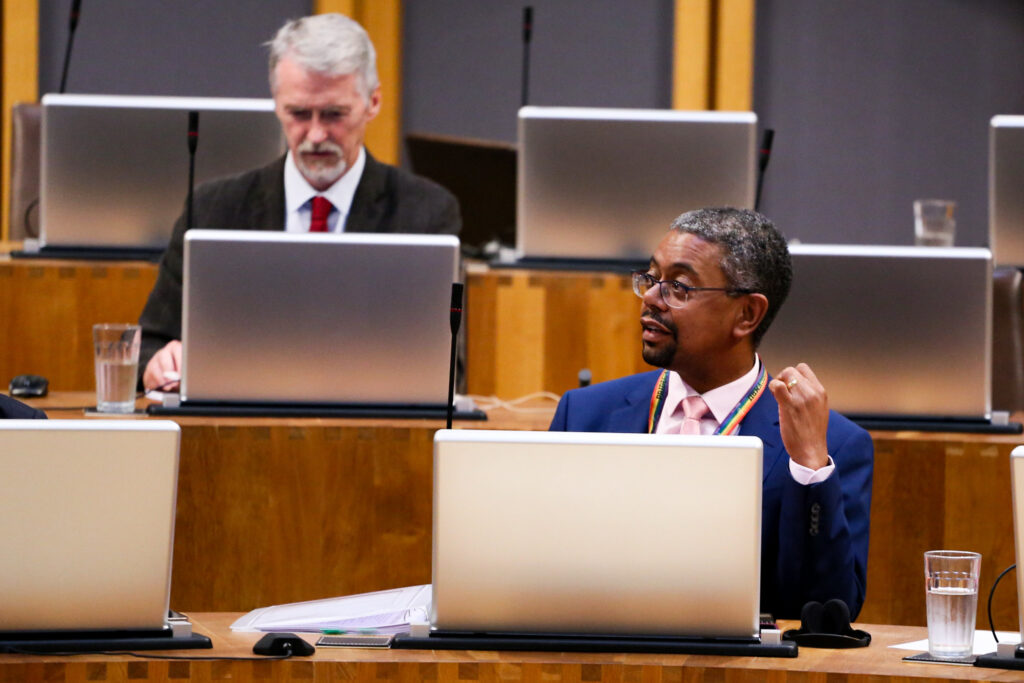Geraint Talfan Davies gives the background to a bullish address by ITV’s Chief Executive at Cardiff Business Club
The last week has seen developments within the ITV network that seem almost certain to pave the way for the renewal of ITV licences due to expire in 2014. These developments are rooted in ITV’s relationship with Scotland and Northern Ireland. But they also underpin a commitment to the continuation of programming for Wales, made by ITV plc Chief Executive, Adam Crozier, in an address to Cardiff Business Club last Monday.
Following the consolidation of the regional ITV companies over the past fifteen years, the ITV network was reduced to four components: ITV plc covering England and Wales, STV in Scotland, UTV in Northern Ireland and Channel TV in the Channel Islands.
But last October ITV plc bought Channel TV, and on Monday it was announced that STV and UTV had agreed to become ‘affiliates’ of Channel 3 (ITV). This deal that also puts to bed a long running dispute between STV and ITV plc over the terms of the Scottish company’s participation in the network. It became a legal wrangle that was settled out of court last year. According to Adam Crozier, the new agreement, which is still subject to regulatory approval, “represents a major milestone for us, as it consolidates and simplifies the network.”
The affiliate arrangement between the three companies, coupled with a renewed commitment by ITV to public service broadcaster status – underlined by Crozier in his Cardiff address – allows ITV to present a united front to government. This makes it almost certain that ITV’s licences will be renewed in the very near future without resort to much change or competition.
There had been some hope that new ITV licences would involve the creation of national licences for the four countries of the UK, a plan that had the support of the regulator, Ofcom. While some will argue this would have more symbolic than real significance, it might have given Wales some small leverage that it badly needs. It is not yet clear whether this will form the basis for licence renewal for what ITV hopes will be a ten year period.
At Cardiff Business Club Adam Crozier made it clear that with renewal of their licences all current programming commitments to Wales would remain in place – in news, current affairs and political programming. There was even a hint that that might grow, although it is more likely to concentrate on increasing its programme sales to S4C which produce income, rather than increasing its output in English on ITV which is a cost.
He was adamant that any serious national broadcaster had to be in news, at the UK level and in the nations and regions. It had to be firmly committed to producing the best programming. In a comprehensive critique of past ITV management he said that the company had lost its way, resorting to blaming everyone else for its troubles and creating an exodus of talent. It had also made poor investments in digital.
Crozier, who has previously headed both the Football Association and the Royal Mail, was appointed Chief Executive of ITV plc in 2010. He says he is only two years into a five year plan to transform the company’s fortunes which has already stabilised the ITV audience that had been in decline for several years. In its latest preliminary results ITV plc reported increases in advertising revenue, programme and format sales, with profits up by a quarter.
ITV’s financial turn-round and Crozier’s trenchant critique of past management must be a cause of some embarrassment for Ofcom, which steadily reduced the channel’s public service obligations over the last decade, largely accepting ITV’s case that its decline was due solely to fundamental changes in the marketplace. While some of those changes, such as the emergence of multi-channel television were substantial, it was ITV plc’s failure to respond effectively that led it into the losses that allowed it to plead poverty so loudly.
Crozier’s transformation plan is based on a commitment to programme quality and investment that has not been seen for some time in ITV, and may have been crucial in reeling STV and UTV into affiliate status.
There had been a long running dispute between ITV and STV over the Scottish company’s regular dropping of peak-time programmes to broadcast Scottish produced programmes instead. STV had claimed that it did not have to pay for programmes that it did not schedule. However, there was a public row in Scotland when STV did not schedule the first series of the hugely successful Downton Abbey, a scheduling decision that even Scottish commentators thought was a shot in STV’s own foot.
The affiliate arrangement recognises the reality “that ITV is the driving force behind the Channel 3 schedule in terms of funding, acquisition and scheduling of content”.
Under the new deal STV will pay a fixed amount for the ITV network schedule, tying it in financially even when it chooses to opt-out. However, STV and UTV will still determine their schedules locally. STV has said it is still committed “to delivering a distinct schedule for Scotland and to providing a platform for informed debate.”






I still get the impression that Wales is coming off second best in relation to Scotland and Northern Ireland, who retain control over their schedules. The time when we are not treated as a mere appendage of England is long overdue